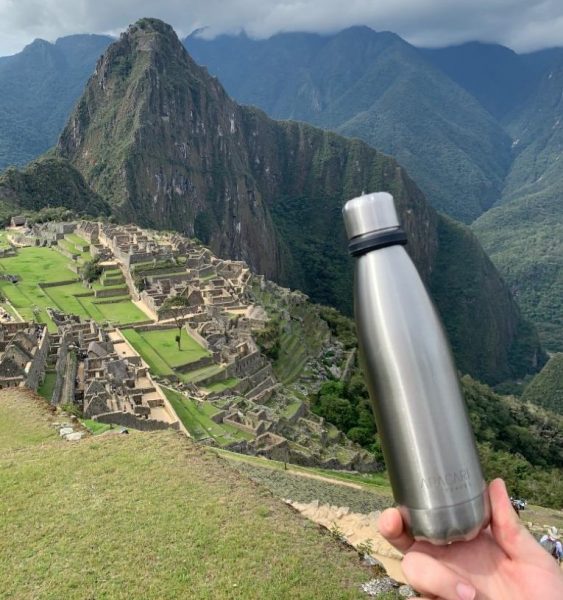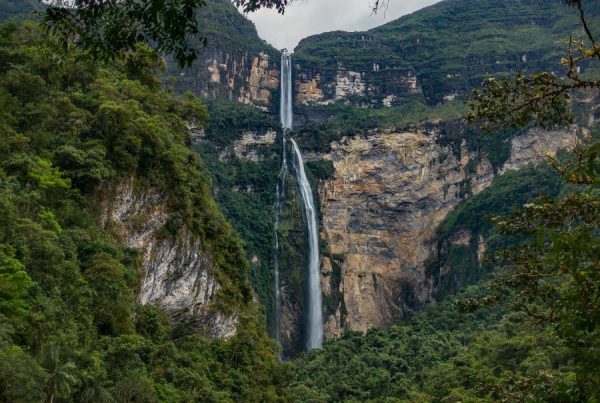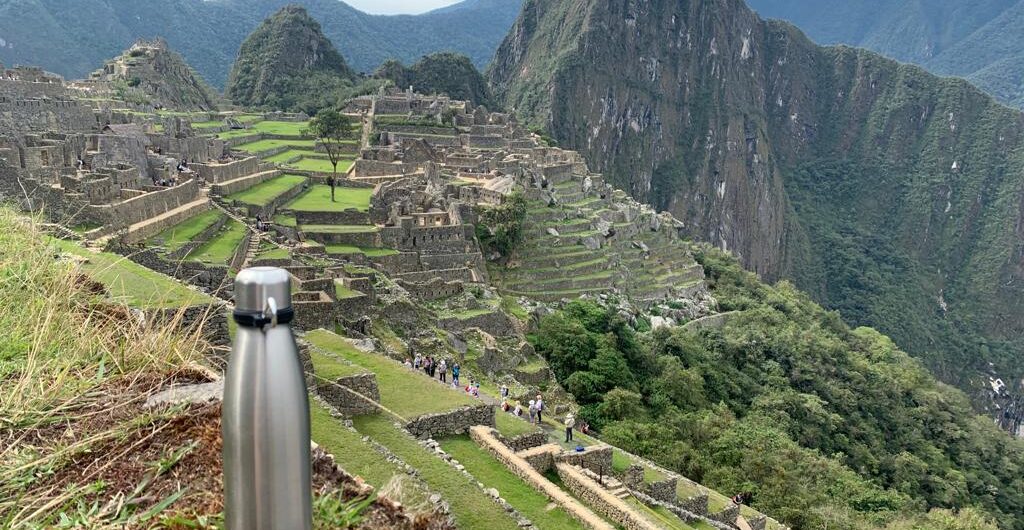For more than 20 years, our ethos of conscious travel has been at the heart of everything we do. Our goal has always been to protect the communities and delicate ecosystems we bring travelers to.
We always look for ways we can further our sustainability practices. That’s why, starting January 1st 2020, we have removed single-use plastic bottles or bags (SUP) from our operations in Peru and Bolivia. To aid in this, we now provide all guests with a reusable water bottle on arrival. We are asking travelers to join our mission to protect Mother Earth and reduce the single use of plastic by taking their bottle everywhere.
The bottle we provide keeps beverages warm for 12 hours and cold for 24 hours. In addition, funds from our purchase of the bottles help a local NGO, Peruanos Sin Agua (Peruvians without Water) provide fresh water for 200 families living on the outskirts of Lima.
We also partner with hotels who share our ethos. One of our hotel partner explains:
“Since 2014 we have saved approximately 112,000 plastic bottles because we do not use them in our hotels. Instead we provide water filters by the extraordinary ceramicist Sonia Lawns or glass bottles with reverse osmosis water in all rooms. This water is available to our guests 24 hours a day, and allows them to fill their canteens and bottles before they go on excursions.”
Tap Water In Peru
 It’s very important to remember that the tap water in Peru is not safe for human consumption. Don’t worry – there are several ways around this! Consider the following tips before you travel:
It’s very important to remember that the tap water in Peru is not safe for human consumption. Don’t worry – there are several ways around this! Consider the following tips before you travel:
1) Fill your reusable water bottle up at hotels, cafes and restaurants. Most hotels provide water refill stations in their lobbies. If your hotel doesn’t have such a station, simply ask the reception desk or restaurant to fill the bottle for you. When you visit a cafe, restaurant or bar ask the servers if there is a way to refill your bottle.
2) Sterilize tap water with a SteriPen water sterilizer. The SteriPen is well-liked and highly recommended by many travelers. It is a portable ultraviolet (UV) water purifier that destroys viruses, bacteria and protozoa. It is small, lightweight and very simple to use – a worthwhile investment if you want easy and near constant access to drinking water.
3) Water purification drops and tablets use chemicals to purify water and they can be purchased before you travel. Again, they are very easy to use: simply drop into the water and wait for it to dissolve. It takes around 30 minutes for the water to become safe to drink.
Other Ways to Reduce Your Impact Whilst Traveling

If you’re wondering how else you can reduce your impact whilst travelling, we have a few suggestions. These suggestions are not exclusive to Peru and can be put in place wherever in the world you are.
Water Conservation
Water conservation is the sustainable management of fresh water. It is important for the protection of the hydrosphere and to ensure we can meet future demand for water.
You can conserve water by turning the tap off when you brush your teeth, taking quick five-minute showers and not wasting drinking water. In hotels you can conserve water (and energy) by reusing your bed linens and towels.
Reduce, Reuse, Recycle
Reducing energy and resource consumption is another excellent way to lower your impact whilst traveling and at home. You can do this by following the three R’s: Reduce, Reuse, Recycle.
Reduce: buy less, buy better and buy locally to reduce waste.
Reuse: reuse linens in hotels, choose reusable water bottles and coffee cups, carry reusable cutlery.
Recycle: put recyclable waste in the appropriate bins so it is turned into something new rather than dumped at landfill.
Don’t Litter
Pristine views and beautiful landscapes are utterly ruined by litter. Litter can also be extremely harmful to wildlife. Please preserve Peru’s beautiful ecosystem and dispose of your trash properly.
We are always happy to discuss our conscious travel policy with our guests, suppliers and local communities. Please feel free to let us know your thoughts and ideas, whether you’ve travelled with us or not.

